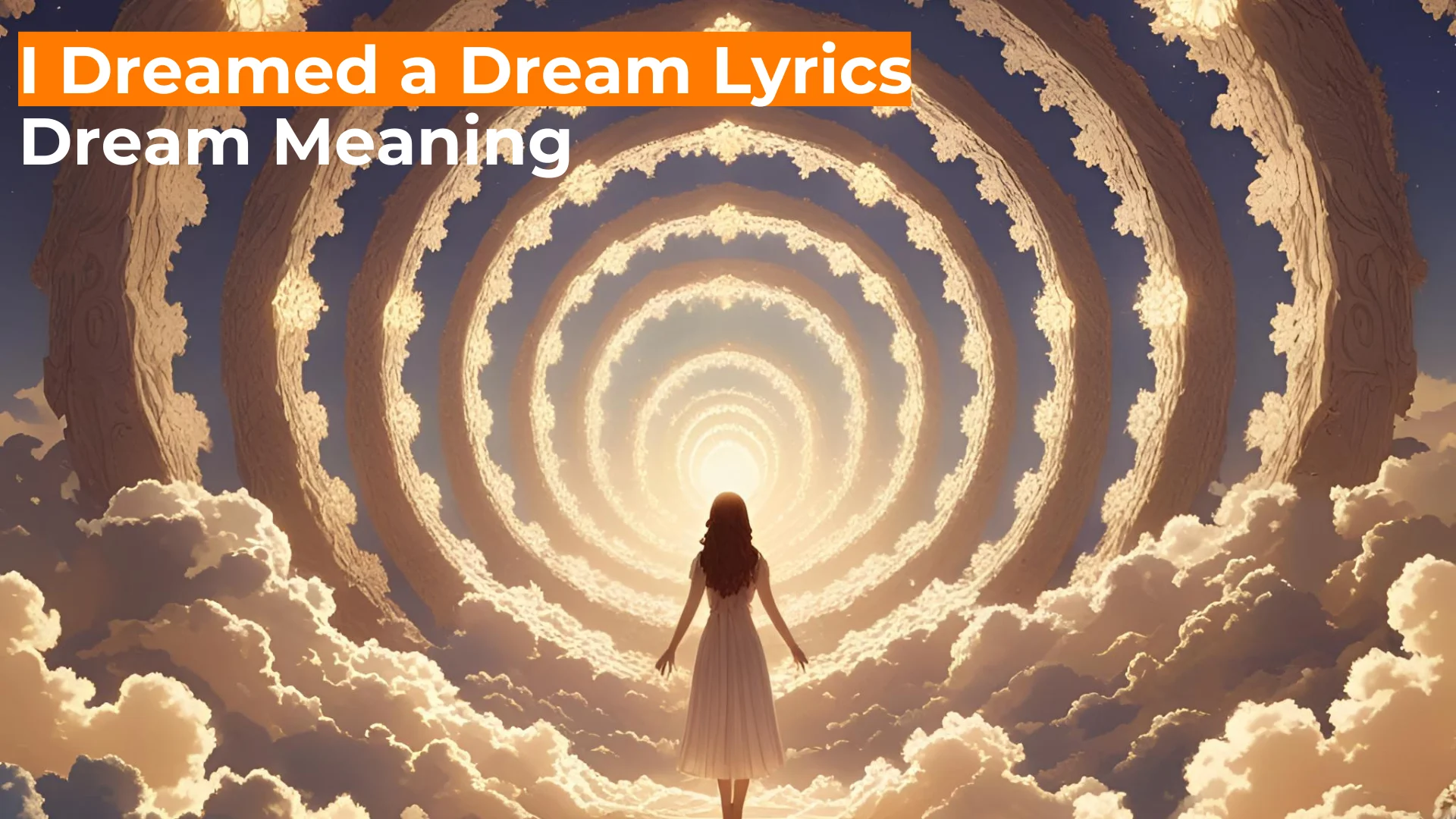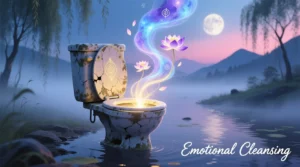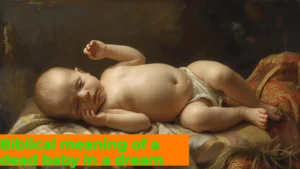Have you ever listened to “I Dreamed a Dream” and felt like it wasn’t just a song, but a reflection of your soul’s secret pain or forgotten hopes? Maybe you’ve asked yourself:
What is the deeper meaning behind these lyrics? Why does this song make me feel so much?
More than a musical ballad, “I Dreamed a Dream” from Les Misérables is a spiritual cry, a dreamer’s lament, and a universal mirror to human suffering and lost innocence. Whether sung by Susan Boyle, Patti LuPone, or Anne Hathaway, the song strikes a universal chord because it touches on what we all carry: unfulfilled dreams, heartbreak, and the desire for redemption.
This blog is a journey into the emotional, spiritual, and life path meanings hidden in the lyrics of this beloved song. Let’s decode it—one verse, one soul echo at a time.
I Dreamed a Dream Original
Originally titled “J’avais rêvé d’une autre vie”, the song was first written in French for the 1980 concept album of Les Misérables. The English version we now know was adapted by Herbert Kretzmer for the West End production in 1985.
The original version, while musically similar, contains subtle shifts in tone and emotion, expressing a universal theme of broken dreams and emotional defeat, yet still retaining a whisper of hope.
In its spiritual essence, the original song speaks of a soul contract—the life the singer thought they were meant to have before reality broke it apart. It asks: What happens to us when our soul’s expectations are crushed?
I Dreamed a Dream Lyrics – Susan Boyle
When Susan Boyle performed this song on Britain’s Got Talent in 2009, the world stopped. Her version carried an energy beyond technical perfection—it was raw, spiritual, and deeply healing.
Boyle wasn’t just singing—she was embodying the lyrics, bringing the emotional weight of a woman who had truly lived through disappointment and ridicule. Her rendition reminded listeners that even the forgotten and underestimated carry dreams worth hearing.
From a spiritual perspective, Boyle’s performance reignited the sacred truth that dreams are timeless—no matter your age, voice, or scars.
I Dreamed a Dream Original Singer
The first English-language singer to record “I Dreamed a Dream” was Patti LuPone in the original London production of Les Misérables.
However, many theatrical purists trace the soul of the song back to Rose Laurens, who performed the original French version. Each singer since has brought their own karma, emotion, and story, infusing the lyrics with personalized spiritual textures.
Spiritually, every singer is a vessel for Fantine’s pain and faith, embodying the collective grief of humanity through performance.
I Dreamed a Dream” Best Version
While opinions vary, some of the most impactful versions include:
- Susan Boyle’s emotional TV debut (2009)
- Anne Hathaway’s Oscar-winning portrayal in the 2012 film adaptation
- Ruthie Henshall’s refined West End interpretation
- Patti LuPone’s powerhouse original
What sets the “best” version apart is not vocal acrobatics, but spiritual authenticity. The best version is the one that moves your soul—the one where Fantine’s dream becomes your own forgotten dream.
I Dreamed a Dream Analysis
Let’s analyze the most powerful lines of the song and what they mean emotionally and spiritually:
I dreamed a dream in time gone by / When hope was high and life worth living
- Spiritual meaning: The soul’s memory of its original purpose.
- Emotional meaning: Nostalgia for youth and innocence lost.
But the tigers come at night / With their voices soft as thunder
- Spiritual meaning: Nightmares, betrayal, or karmic pain disguised as false comfort.
- Psychological view: This is trauma masked as love or security.
He slept a summer by my side / But he was gone when autumn came
- Spiritual symbol: Impermanence of earthly love and illusion.
- Emotional truth: Abandonment, the fragility of joy.
Now life has killed the dream I dreamed
- This final line expresses total surrender, yet in that surrender lies potential for spiritual awakening.
I Dreamed a Dream Song
More than a song, it is a musical prayer. It is Fantine’s soliloquy, but also a collective cry from everyone who has ever believed in something or someone that didn’t last.
Musically, its rising and falling tones mimic the waves of grief, and its melodic longing invites us into a sacred space of inner reflection.
In sacred dream language, this song aligns with the archetype of the Wounded Healer—a soul who suffers not in vain but to transmute pain into spiritual depth.
Who Wrote I Dreamed a Dream
- Music: Claude-Michel Schönberg
- French lyrics: Alain Boublil and Jean-Marc Natel
- English lyrics: Herbert Kretzmer
These writers tapped into a spiritual archetype that transcends time—one of lost innocence, karmic betrayal, and the painful evolution of the soul. Their words carry emotional DNA recognizable across generations.
Who Is Fantine Singing About in I Dreamed a Dream
Fantine sings about a man who abandoned her, but on a deeper level, she’s singing about the betrayal of life itself. She mourns the version of herself that once believed in love, fairness, and joy.
Spiritually, she’s addressing:
- The Divine: Why was my dream denied?
- Her past self: How could I have believed?
- The world: Do you see me? Do you hear my pain?
In dream symbolism, this is shadow work—the soul confronting the wounds it was meant to heal.
I Dreamed a Dream
This song title alone has become a modern mantra. People repeat it without realizing they’re invoking a deep inner truth—that we all carry dreams, and we all suffer when those dreams are broken.
From a psychological lens, dreaming a dream represents the ideal self or life vision. The breaking of that dream is the ego death, and it is essential for soul growth.
I Dreamed a Dream Lyrics
The full lyrics are a narrative of hope, loss, betrayal, and surrender. But beneath the narrative lies an even greater truth:
You can only dream a dream when your soul is alive.
The fact that Fantine still dreams amid suffering reflects the soul’s resilience. That is its most spiritual line—not spoken, but implied.
I Dreamed a Dream Lyrics Meaning Les Mis
In Les Misérables, the song sits at a pivotal point. Fantine has lost her job, her dignity, and her hope. Singing this song is her emotional exorcism. She releases the dream she clung to and opens herself to fate.
In context, it represents:
- The fall of the feminine
- Society’s cruelty toward the vulnerable
- How life often kills what is purest in us
But in doing so, Fantine becomes the emotional and spiritual heart of the entire story.
I Dreamed a Dream Lyrics Meaning in English
The English version is more than a translation—it’s a reinterpretation that focuses more on emotional betrayal than existential disillusionment (as seen in the original French).
Some lines become more universal:
- “I had a dream my life would be / So different from this hell I’m living.”
This speaks to every soul who’s ever felt trapped in a reality far from what they imagined.
It echoes the spiritual idea of pre-birth soul contracts—where we dream of lives full of meaning and connection, only to awaken in a world where suffering teaches us our deepest lessons.
I Dreamed a Dream Lyrics Meaning Love
Love is at the heart of this song—but it’s not romantic love. It’s the loss of ideal love, the pain of abandonment, and the illusion of fairy-tale connection.
Fantine loved a man who betrayed her, but the bigger heartbreak is that she loved life—and life broke her.
Spiritually, this is the moment when attachment gives way to awakening. True love, the lyrics seem to suggest, isn’t about holding someone—it’s about understanding how love itself must first begin within.
Dream Symbolism from Psychology + Spiritual Side
From a psychological perspective, the song represents:
- Shattered ego expectations
- The grieving process
- Dissonance between the ideal self and real self
Spiritually, it reflects:
- The death of the false self
- A soul’s return to truth through suffering
- Shadow integration
The “dream” is the soul’s desire for joy, union, and peace. When it breaks, the pain is real—but so is the potential for rebirth.
Cultural Dream Interpretations
Across cultures, dreams are seen as bridges to the divine:
- In Jungian archetypes, Fantine embodies the Wounded Feminine—she sacrifices everything and returns to Source through pain.
- In Eastern philosophy, suffering is a path to karma cleansing and enlightenment. Fantine’s broken dream is her awakening.
- In Christian mysticism, suffering often precedes grace—Fantine’s death leads to Cosette’s redemption.
Fantine’s “dream” is not wasted—it is transmuted into legacy, love, and light.
Conclusion:
“I Dreamed a Dream” is not just a performance piece—it’s a sacred lament, a spiritual echo, a universal anthem for anyone who’s ever dared to hope and lost.
Yet within its heartbreak lies a deeper invitation—to let go of illusions, to heal, and to dream again, but this time from a place of truth.
When you hear this song next, close your eyes. Don’t just listen. Feel. You may just hear the whisper of your own soul saying:
I dreamed a dream too… and I am still here.


